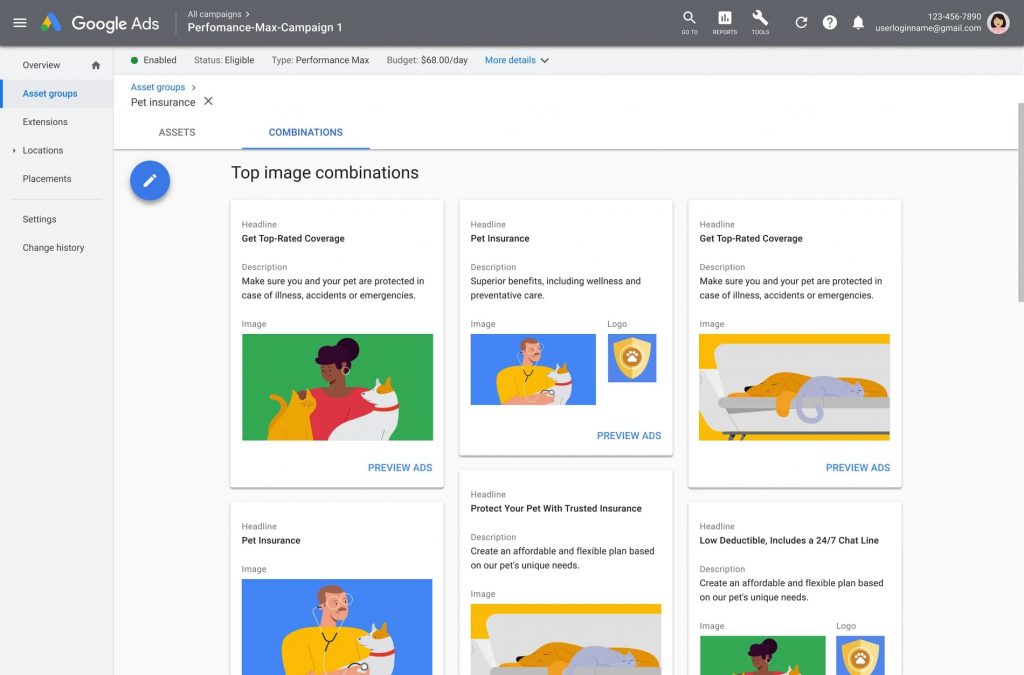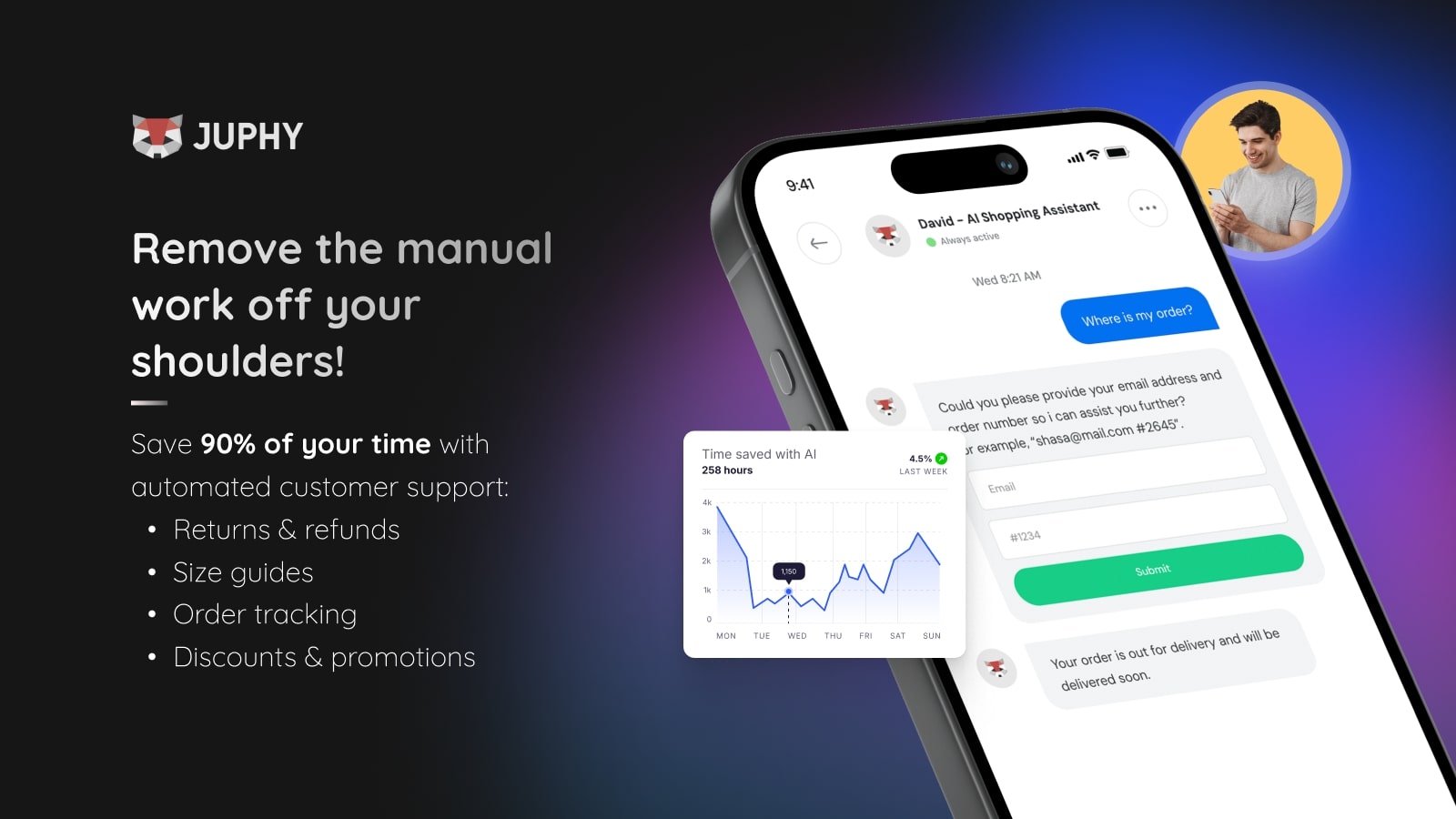Juphy’s Weekly E-Commerce News Express – 13-17 May 2024
Ceyda Duz
In this week’s e-commerce & AI news roundup, we cover Adobe’s eye-opening predictions, surpassing $500 billion in U.S. retail e-commerce spending, alongside the growing concerns surrounding data privacy. Plus, we’ll dive into the latest updates from Amazon Ads, Meta, and Google, unveiling fresh tools that entered the world of retail and online shopping. Join us as we discuss all of the latest trends and developments that are shaking up and shaping the future of retail, AI, and online shopping!

Adobe Predicts Strong 2024 E-Commerce Growth
In Adobe Analytics‘s latest analysis to predict this year’s e-commerce trend including more than 1 trillion site visits and 100 million SKUs across 18 product categories, the results turned out very promising by forecasting over $500 billion in U.S. retail e-commerce spending for the first half of 2024. According to their projection, despite economic uncertainties e-commerce and consumers are resilient, which can be seen by the 7% e-commerce spending growth in the initial third of 2024.
In the first quarter of 2024, U.S consumers spend $331.6 billion online with
- Electronics ($61.8 billion),
- Apparel ($54.5 billion), and
- Groceries ($38.8 billion)
leading the way. Cosmetics also saw considerable growth, with sales reaching $13.2 billion.

Additionally, Adobe stated a significant shift towards budget-friendly products across various categories since January 2019. The share of the cheapest products increased dramatically in
- Personal care (up 96%),
- Electronics (up 64%), and
- Apparel (up 47%), among others.
Even categories with stronger brand loyalty, such as sporting goods and appliances, saw increased sales of lower-priced items, indicating consumers’ strategies to combat inflation.
Moreover, Buy Now, Pay Later services continue to gain traction in the U.S. due to the added flexibility for consumers in managing their budgets. By April 2024, BNPL spending reached $25.9 billion, an increase of almost 12% from the previous year that is predicted to rise even more throughout the year.

Turning to another popular topic, mobile commerce, which also saw significant growth, with $156.9 billion in sales during the first four months of 2024. With a nearly 10% rise compared to the same period in 2023, Adobe predicts that mobile sales will account for nearly 52% of online revenue during the 2024 holiday season. Following the trend from the 2023 holiday season, where mobile spending surpassed desktop for the first time, it seems like 2024 will be dominated by mobile commerce again.
Overall, Adobe’s latest data underlines the dynamic nature of the digital economy, with continued growth in e-commerce spending despite economic challenges. The shifts in consumer behavior and the adoption of new shopping technologies highlight the ongoing changes happening in this year’s e-commerce landscape.
Rising Mistrust in Online Retail Data Privacy
Mistrust in how online retailers handle customer data is a topic that is always at the center of attention. It not only causes significant revenue losses but also reduces customer loyalty, harming e-commerce brands. This harm can be seen especially over the past year when 26% of consumers abandoned brands due to privacy concerns. The growing distrust stresses the need for digital retailers to prioritize data security.

The key findings from the Thales 2024 Digital Trust Index Ranking highlight the severity of the issue:
- Low Consumer Confidence: Only 8% of consumers feel comfortable sharing personal information with online retailers.
- Impact Across Sectors: Media, entertainment, social media, and logistics companies rank lowest in consumer trust.
- Demand for Security: Customers expect a balance between security and positive digital experiences. Their trust rate is higher in banking, healthcare, and government services due to strict regulations and data protection measures.
- Privacy Expectations: Consumers increasingly expect transparency and control over their data, including rights to be informed about data collection, corrections, and more.
Despite recognizing the need for improved data privacy, many retail businesses lag in implementing effective solutions. Therefore strong GDPR enforcements like Europe implemented can provide better data privacy practices.

When it comes to consumer abandonment and privacy demands:
- 29% of consumers abandoned brands that demanded excessive personal information in the past year.
- 87% expect privacy rights from online companies, with significant emphasis on being informed about data collection and having the option to erase personal information.
- 93% of consumers abandon online interactions within five minutes if faced with frustrating experiences.
To build trust and ensure customer retention, retailers must go beyond compliance and actively address consumer demands for privacy and seamless online experiences. As more regulations like GDPR emerge, retailers need to adopt strong data privacy measures to stay competitive and maintain their loyal customer bases.
Amazon Ads Introduces Three Streaming TV Ad Formats

Amazon Ads has revealed a new set of interactive and shoppable ad formats for Prime Video, featuring remote-enabled functionalities for living-room devices. In the upcoming broadcast year, brands will have access to shoppable carousel ads, allowing viewers to browse and shop various product variations directly on Amazon during ad breaks within Prime Video content. Additionally, brands can leverage interactive pause and trivia ads embedded within Prime Video TV shows, movies, and live sports, offering engaging experiences to viewers.
Meta Unveils Enhanced Generative AI Features for Advertisers
Meta has introduced advanced generative AI features for advertisers, empowering them to generate full image variations inspired by original ad creatives. These enhancements include text overlay capabilities and a selection of popular font typefaces. The expanded image creation functionality is now accessible on Reels and feeds across Instagram and Facebook. Additionally, advertisers can leverage the text generation feature to create variations for ad headlines, augmenting the flexibility and customization of their advertising campaigns.

Google Introduces Performance Max for Marketplaces

Google Ads has rolled out Performance Max for Marketplaces, offering a solution for merchants to enhance their presence and boost product sales on select marketplaces without the necessity of a website or Google Merchant Center account. Powered by Google’s automation, Performance Max enables product advertisements across various Google Ads channels, including Search and Shopping.
The New Way of Customer Support for Shopify: Juphy AI
With a promising future for e-commerce and consumers seeking secure and reliable brands that they can trust, offering exceptional customer support is one of the key ways to make them feel important and valued, ultimately gaining their trust. However, handling each and every customer efficiently in an online store can be challenging, leading to decreased time per customer. Integrating Juphy’s AI Agent for Shopify can be a game-changer.
Juphy AI not only offers round-the-clock customer support but provides it instantly and with a caring, detailed approach. With Juphy’s AI Agent, your Shopify store gains an always-on AI shopping assistant that tirelessly assists every customer for as long as they need, without fatigue. This addition not only builds a loyal customer base but also strengthens existing relationships while driving more sales and customers to your store.
Ready to be a part of this future? Try Juphy’s AI Agent now: apps.shopify.com/juphy

Key Takeaways
Adobe Predicts 2024 E-Commerce Growth: Adobe Analytics forecasts over $500 billion in U.S. retail e-commerce spending for the first half of 2024, with significant growth in mobile commerce and Buy Now, Pay Later services.
Rising Mistrust in Online Retail Data Privacy: Concerns over data privacy continue to grow, with 26% of consumers abandoning brands due to privacy concerns, emphasizing the need for digital retailers to prioritize data security and transparency to maintain customer loyalty.
Amazon Ads’s Streaming TV Ad Formats: Amazon Ads unveils interactive and shoppable ad formats for Prime Video, enabling brands to engage viewers with carousel ads and interactive pause and trivia ads, enhancing the shopping experience within Prime Video content.
Meta’s Generative AI Features for Advertisers: Meta introduces advanced generative AI features for advertisers, allowing them to generate full image variations and text overlays inspired by original ad creatives, enhancing customization and flexibility across Instagram and Facebook.
Google’s Performance Max for Marketplaces: Google Ads launches Performance Max for Marketplaces, enabling merchants to boost product sales on select marketplaces without the need for a website or Google Merchant Center account, powered by Google’s automation across various ad channels.

